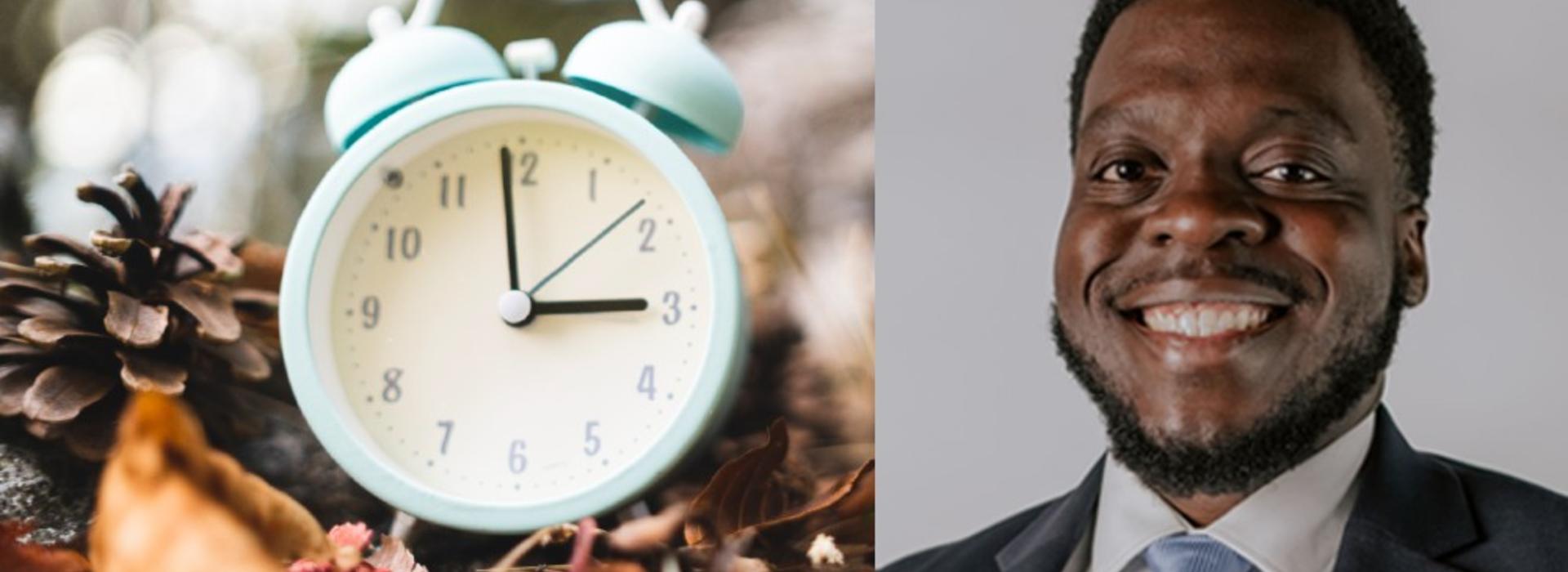
U of M Expert Alert: Health impacts of daylight saving time
MINNEAPOLIS/ST. PAUL (11/01/2022) — Daylight saving time will officially end on November 6 when people in the United States turn back their clocks at 2 a.m. While many are looking forward to the extra hour of sleep, there are other health impacts to consider.
University of Minnesota Medical School expert Akinbolaji Akingbola, MD, MS, speaks about how sleep health is impacted by “falling back.”
Akinbolaji Akingbola, MD, MS
“The change associated with switching to daylight saving time is very disruptive to the typical light/dark cycle of human activity and may lead to circadian misalignment. This misalignment is associated with both public safety harm in the short term and possible detrimental effects to our health in the long term, including increasing risk of metabolic syndrome, cardiovascular disease and possibly cancer.”
Contact
Akinbolaji Akingbola, MD, MS
Assistant Professor of Medicine, Division of Pulmonary, Allergy, Critical Care and Sleep
Email: mednews@umn.edu
Download a high resolution photo of Dr. Akingbola.
Akinbolaji Akingbola, MD, MS, is an assistant professor of medicine at the University of Minnesota Medical School and sleep medicine physician at M Health Fairview. His research interests include cardiopulmonary physiology and sleep-related breathing disorders, sleep and athletic performance and the intersection of sleep medicine and hospital medicine.
-30-
About “Expert Alert"
University of Minnesota experts can provide commentary, insights and opinions on various news topics. Find selected experts on UMN’s Experts Guide or send requests to unews@umn.edu.
About the University of Minnesota Medical School
The University of Minnesota Medical School is at the forefront of learning and discovery, transforming medical care and educating the next generation of physicians. Our graduates and faculty produce high-impact biomedical research and advance the practice of medicine. We acknowledge that the U of M Medical School, both the Twin Cities campus and Duluth campus, is located on traditional, ancestral and contemporary lands of the Dakota and the Ojibwe, and scores of other Indigenous people, and we affirm our commitment to tribal communities and their sovereignty as we seek to improve and strengthen our relations with tribal nations. For more information about the U of M Medical School, please visit med.umn.edu.